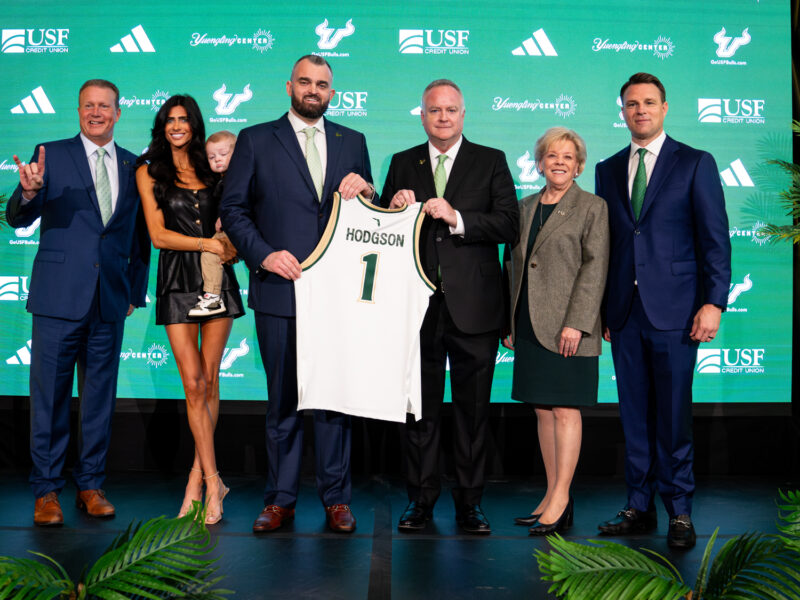
Darren Lasso must perform 100 hours of community service and pay $1,334 in court fees and costs.
A former student who was charged with sexual battery and kicked off campus after an assault in May 2014 was sentenced to five years’ probation last week after pleading guilty to a lesser charge.
Darren Lasso, 22, was also ordered to perform 100 hours of community service, pay $1,334 in court fees and costs, and have no contact with the victim.
Adjudication was withheld, which means the conviction will not go on his permanent record if he satisfactorily completes the terms of his sentence.
Lasso declined to comment after he was sentenced Jan. 19 in Pinellas-Pasco criminal court. But his attorney, Bryant A. Camareno, said Lasso has “learned his lesson in respecting women’s rights and privacy. When a female says no, that means no.”
Lasso “feels sorry for what he has committed,” Camareno said. “He has felt remorse for what she (the victim) has been through. Now that the trial process has ended, everyone can move on with their lives.”
Because Lasso pleaded guilty, his victim did not have to testify in court. She was not in the courtroom for Lasso’s change of plea and sentencing.
“This has been pretty tough on her,” said the prosecutor, Assistant State Attorney Carlos Nash Licona. “To have something like this happen is a burden.”
Lasso was a sophomore biology major when the assault occurred in May 2014 in Residence Hall One. He and the victim were watching a television show in her room and began kissing, university police said. He began pressing her for sex. As she protested, he began to remove his shorts and her pants and then assaulted her, police said.
Three days later, Lasso was arrested on charges of sexual battery and kicked out of school.
A sexual battery conviction can mean up to 15 years in prison. By pleading guilty to a lesser charge of felony battery, Lasso avoided a prison sentence.
Circuit Judge Joseph A. Bulone, who accepted the plea deal, told Lasso he must accept the consequences of his behavior and learn through his mistake.
While his case was pending in court, Lasso underwent anger management counseling and psychotherapy treatment to help determine if he should be categorized as a violent or sexual offender.
The doctor who conducted the treatment determined that Lasso, who is now a student at St. Petersburg College, showed low risk for more violent behavior, Licona said.
The Lasso case comes amid national and local campaigns against sexual violence on college campuses.
The Office of Civil Rights in the U.S. Department of Education is scrutinizing colleges and universities for possible violations of federal law in their responses to sexual violence allegations.
President Barack Obama – joined by celebrities – is calling attention to the issue with an “It’s On Us” campaign urging people to “take the pledge and make a personal commitment to keep women and men safe from sexual assault.”
At USFSP, university administrators and campus police have taken steps to raise awareness of the growing national problem. Last fall, the USFSP student government joined the “It’s On Us” campaign to help educate the campus community about the dangers students may face.
Incidents of reported sexual assault have been rare at USFSP, where the vast majority of students live off campus. David Hendry, the chief of campus police, said there have been no reported sexual assault cases since Lasso’s arrest.


